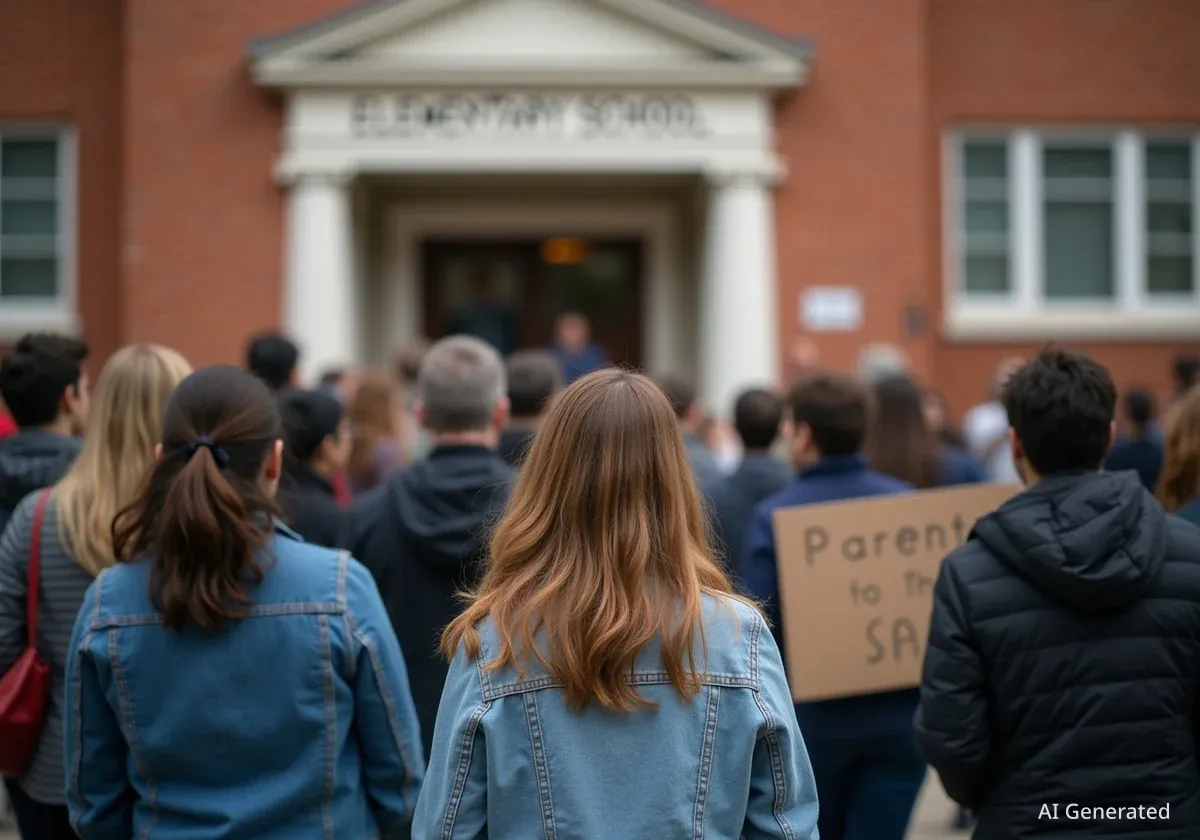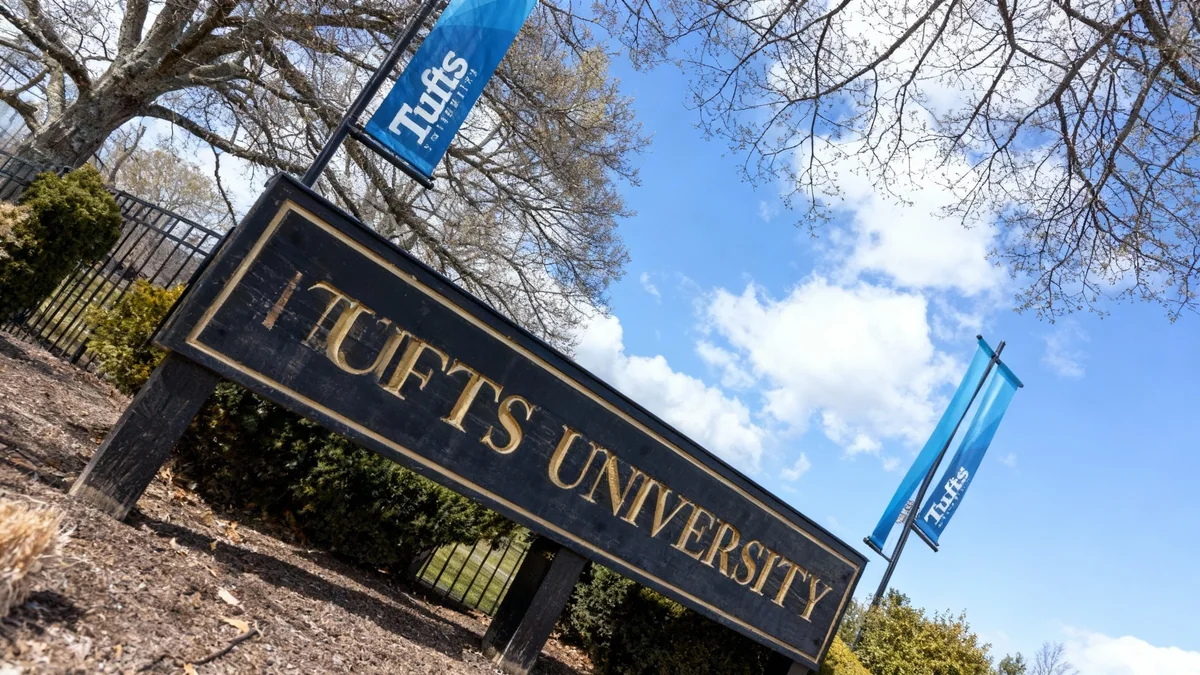A proposal by the Lakewood City Schools superintendent to close Lincoln Elementary School and repurpose it as a centralized preschool has generated significant opposition from parents and community members. The plan, which cites declining enrollment as its primary justification, also includes redrawing the district's elementary school boundaries, a move that has raised concerns about transparency and the validity of the supporting data.
Key Takeaways
- Superintendent Maggie Niedzwiecki recommended closing Lincoln Elementary due to falling K-5 enrollment.
- The building would be converted into a district-wide pre-K center, with changes taking effect in the 2027-2028 school year.
- Parent groups and some task force members challenge the decision, citing flawed data and a lack of community support.
- Concerns have been raised about the transparency of a task force that studied the issue in closed-door meetings attended by school board members.
District Cites Declining Enrollment for Proposed Changes
Superintendent Maggie Niedzwiecki presented the recommendation to the school board, pointing to a significant drop in student numbers. According to district data, K-5 enrollment has decreased from 2,286 students in the 2015-2016 school year to 1,792 in the current academic year.
The district also relied on a long-term forecast from a hired contractor, which indicated no projected enrollment growth over the next ten years. Niedzwiecki stated that closing Lincoln Elementary, a facility just over a decade old, would have the least impact on the walking distance for families compared to shuttering other schools.
Enrollment and Occupancy Figures
- Enrollment Drop: K-5 enrollment has fallen by 494 students, or nearly 22%, since 2015.
- Current Occupancy: The district's seven elementary schools have an average building occupancy of approximately 66%.
- Proposed Occupancy: Redistricting would increase the average occupancy to 69.3%, a modest gain of just over 3 percentage points.
Details of the Reorganization Plan
The proposal extends beyond the closure of Lincoln Elementary. If approved, the building would become the central location for all district pre-K programs, which are currently housed within each student's home elementary school.
The plan also involves relocating several specialized programs:
- CHAMPS classrooms would move from Horace Mann Elementary to Hayes Elementary.
- RISE classrooms would be relocated from Emerson Elementary to Horace Mann Elementary.
- Gifted classrooms would shift from Grant Elementary to Hayes Elementary.
Additionally, the superintendent recommended playground upgrades at multiple schools. The school board is scheduled to vote on the full recommendation at its meeting on October 20. If passed, the new school boundaries would be announced during the 2026-2027 school year, with the full plan implemented for the 2027-2028 school year.
Community Groups Challenge the Decision
The superintendent's recommendation was met with immediate criticism from organized parent groups who have been monitoring the issue for months. The group Preserve Lakewood Schools released a statement arguing that the board was preparing to make a "massive decision" based on questionable information.
"The superintendent’s recommendation is a reactionary move, not part of a thoughtful vision for Lakewood’s future that the community can buy into," the group stated.
Controversy Over the Advisory Task Force
A separate group, Friends of Lakewood Schools, raised procedural concerns about the task force appointed by the superintendent to study the issue. The group used public records requests to show that all five school board members were part of the 50-member task force and attended multiple closed-door meetings.
While the superintendent designated the body as an executive advisory committee exempt from Ohio's open meetings laws, the group alleged that the board's attendance constituted a violation. The district denied that board members deliberated, stating they attended only as observers. Ultimately, the district decided not to use the task force's work after receiving a letter from the group threatening legal action.
Two members of that task force publicly disputed the superintendent's proposal moments after it was presented. Jason Keiber, a task force member, said that community surveys did not show broad support for the plan and that over 40% of parents indicated they were unlikely to use a centralized pre-K program.
"There’s not strong support for this. It’s not there," Keiber said. "What are we doing?"
Another task force member, Zach Robock, claimed the recommendation was inconsistent with community feedback. "What we saw tonight was not accurate or honest," he stated.
Parents Voice Personal Concerns
During the public comment portion of the meeting, several parents shared personal stories about the potential impact of the school closure and redistricting. Scott Stahl, who lives near Lincoln Elementary, said he purchased his home with the expectation that his young daughter would one day attend the school.
"I still believe we should follow the data," Stahl said. "And the data, which is now significantly out of line with projections, says there is no need to close an elementary school at this moment."
Autumn McKenzie, a mother of a fourth-grade son with autism, spoke about the social and emotional challenges that come with changing schools. Her son was recently moved to the RISE program at Emerson Elementary and has been working hard to build new friendships.
McKenzie explained that for many neurodivergent students, forming social connections can take years. She argued that forcing another transition on children who have already experienced the disruption of the COVID-19 pandemic could cause significant upheaval to their social development.
"I beg you to ask yourselves, if school repurposing isn’t absolutely unavoidable, why would we ask these kids to take another hit?" McKenzie asked the board. "Because sure, some might get right back up. But some, like my son, won’t."
The majority of speakers at the meeting were critical of the proposal. One of the few voices in support was former Board President Linda Beebee, who was on the board when the facilities study began in 2023. She dismissed the opposition, suggesting it represented a small fraction of the community and that most residents are more concerned with property taxes.





